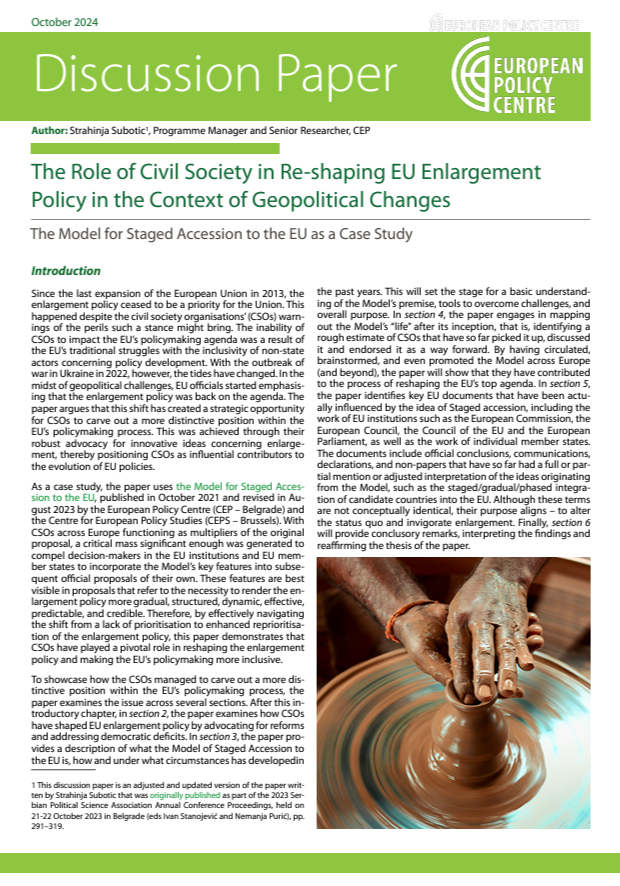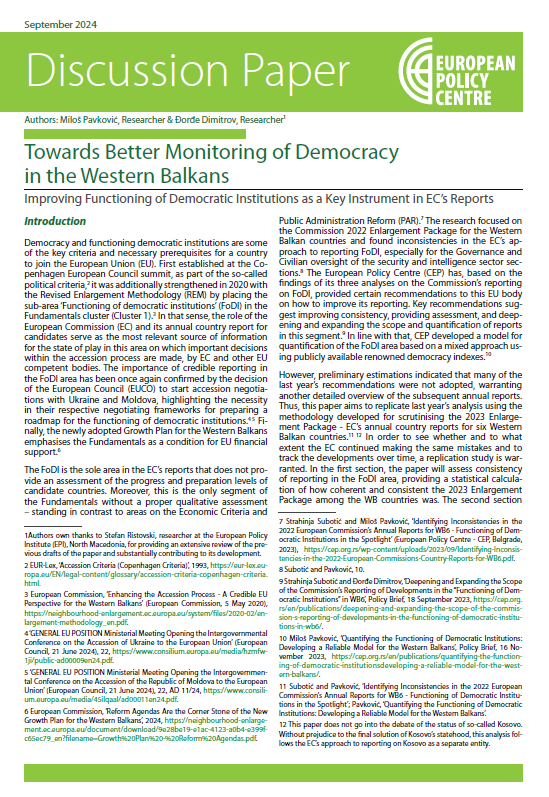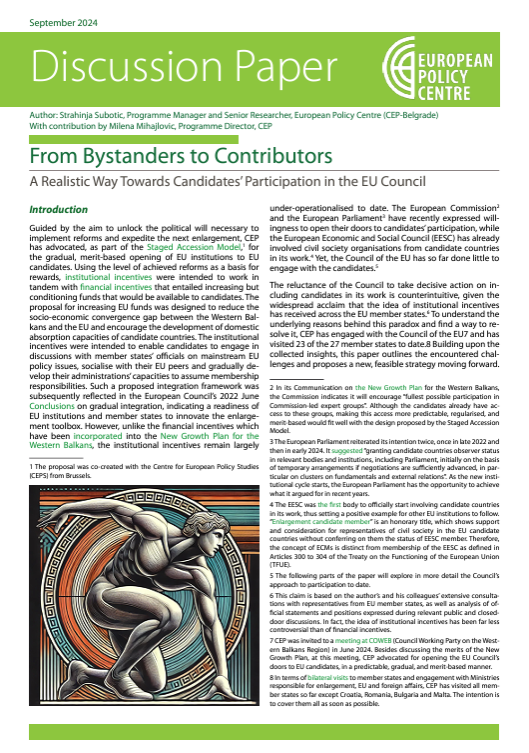Headquarters: Svetog Nauma 7, 11000
Office address: Đorđa Vajferta 13, 11000
Phone:: +381 11 4529 323
The road of Bosnia and Herzegovina (BiH) to the EU has been long. Although the country gained the European perspective in 2003, the country managed to submit its application for EU membership only in 2016. The EU Council accepted the request for membership and after the answers to the Questionnaire were delivered by BiH’s authorities, the European Commission (EC) issued its Opinion on BiH’s application for EU membership in May 2019, outlining 14 key priorities (Annex II) for the country to address before opening accession negotiations, as well as a comprehensive roadmap for incremental reforms. In the context of geopolitical shifts in Europe, in its Report in October 2022 the European Commission (EC) recommended that BiH be granted candidate status by the Council, on the understanding that a number of steps are taken to strengthen democracy, the functionality of state institutions, the rule of law, the fight against corruption and organized crime, media freedom, and migration management in the country. After intense diplomatic exchanges, the European Council granted the candidacy status to BiH on 15th December 2022.
Even though the country made this important step and the population supports European integration, as well as all political parties, at least declaratively, the process is at a stalemate. The fact that there is opposition to further enlargement within the EU, as well as the fact that, according to the current methodology, concrete benefits that are appealing to both politicians and the public are virtually non-existent, causes support not to translate into a willingness to implement reforms. In order to avoid a scenario in which Bosnia will be forever trapped in being a candidate country that cannot start accession talks, the paper aims to uncover whether and how the Staged accession model can insert dynamism into the process and how it would be received in the country, outlining the stakeholders and their potential issues with the model. Following the implementation of the elections, using the Staged accession model, new dynamics and momentum for the process of European integration could be expected.
This paper is part of the National Issue Paper Series developed within the project “Support for further development of the model of the Western Balkans staged accession to the European Union“ implemented by the European Policy Centre (CEP – Belgrade) and the Centre for European Policy Studies (CEPS – Brussels). The Project is funded by the Open Society Foundations (OSF).


